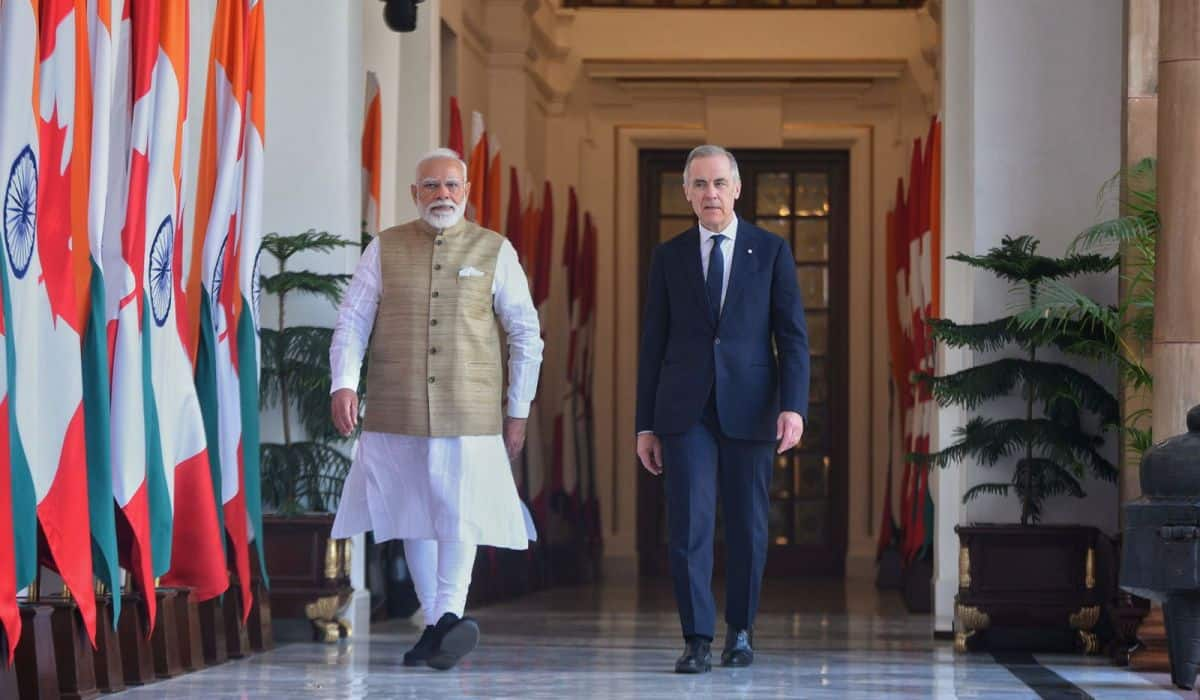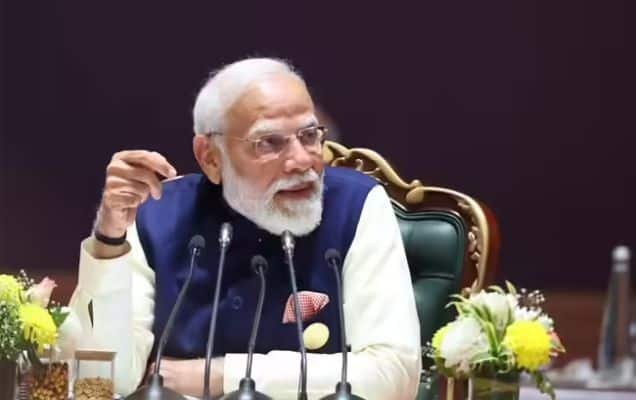In the meeting with 14th Finance Commission held at Gandhinagar today, Gujarat Chief Minister Narendra Modi stressed for a paradigm shift in Finance Commission’s approach for allocating central funds to the states.
Mr. Narendra Modi suggested to bring about a qualitative change in the current formula for allocating funds to the states and to adopt an approach to allocate more funds to the states having higher fiscal discipline and growth.
Finance Commission members, led by the Finance Commission chairman Dr. Y.V. Reddy, included Mr. Abhijeet Sen, Dr. Sudipto Mundale, Dr.M Govindram ,Ms. Shushma Nath and Additional Secretary to Government of India Mr. N.N. Jha.
Chief Minister said that Gujarat is rapidly going ahead for the development of nation wherein water management is prioritized. He further added that had Gujarat not succeeded in water management, it would have become a burden on the nation.
Chief Minister said the State Government annually spends huge amount of Rs. 5000 crores only for Sardar Sarovar Yojana and its waters have been primarily planned to be utilized for the developmental purposes. Chief Minister emphasized to allocate 90% grant for the Narmada Yojana under Accelerated Irrigation Benefit Program (AIBP) covering the DPP and DPAP territories.

Chief Minister said that Gujarat has given equal importance to agriculture, manufacturing and service sectors with a view to strike balance in the state economy. He suggested having centre’s encouragement for developing infrastructure in the field of agricultural and natural resources.
Chief Minister further suggested for central incentives to the states which initiate novel steps for saving subsidies. Government of Gujarat spent on its own to construct gas grid pipelines and thereby saved the central subsidies worth crores of rupees.
Mr. Modi suggested that states should be encouraged to chalk out their own ‘export promotion policy’ and thereby strengthening export.
He underscored the need to chalk out parameters for ‘outcome’ instead of ‘output’. He said the measures for curbing naxalism in the states which are prone to this problem are directly linked with the country’s growth and that the parameters should be prepared keeping in mind such kind of issues.
Mr. Modi suggested launching a national sanitation and cleanliness drive keeping in view the Mahatma Gandhi’s 150th birth anniversary celebration in 2019.
Chairman of Finance Commission Dr. Y V Reddy lauded the approach of proactive contribution for giving thrust to the national economy. He welcomed Mr. Modi’s suggestions on empowerment of states and development on the present global scenario.

Chief Minister Narendra Modi told that because of the present attitude of finance commission, various states which don’t have good finance discipline gets more benefit same time states which are in process to achieve progressive growth rate does not get motivation. This approach should be change and fair financial allocation should be given to those states which has higher share in national GDP to meet infrastructural needs and development.
He said the present approach of Finance Commission favours the states with poor fiscal discipline while leaving the states with higher growth rate disappointed. Mr. Modi said the Commission should change its approach and allocate higher funds to the states that contribute more in the national GDP with a view to give impetus to development and the creation of infrastructural facilities.
He suggested using ‘vertical approach’ for allocating central funds to the states. Mr. Modi also suggested the Central government should provide 50% of its tax revenues to the states instead of 32%. “No objective parameters are followed for allocating funds to states for implementation of central government sponsored schemes, which may lead to injustice to certain states”, he said. Citing the example of Sarva Siksha Abhiyan Mr. Modi said that while Hariyana has been given per capita allocation of Rs.356 and the national average has been Rs.386 under the scheme during past five years, per capita allocation for Gujarat has been merely Rs.245.
Suggesting the formula for the allocation of central funds to the states the Gujarat government said the allocation has to be 25% based on population, 5% based on migration, 10% based on area, 35% based on the fiscal capacity distance, 5% based on state’s contribution in national economy and 20% based on the state’s fiscal discipline.
Gujarat government pointed out that the state needs massive funds for improving human development index (HDI), drinking water and developing infrastructural facilities. The state officials suggested several sectors such as education, health, nutrition, urban development, salinity ingress for receiving grant-in-aid given by the Finance Commission.
State Finance Minister Nitin Patel, Energy Minister Saurabh Patel, Chief Secretary Dr. Varesh Sinha and senior officials of all major departments of state were present on the occasion.














